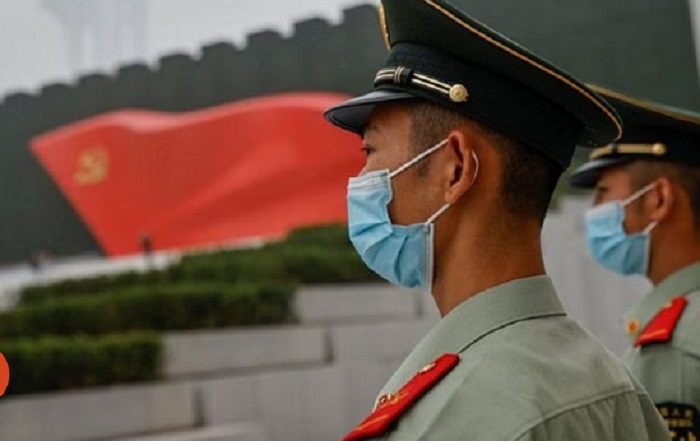
China employs its overseas policing mechanism to target Chinese nationals, reported Indo-Pacific Center for Strategic Communications (IPCSC).
This illegal and extra-judicial international security apparatus – 102 Chinese Overseas Police Stations (COPS) –has its network in about 53 countries.
These police stations are run as annexes under the control of the police organizations of the Chinese cities of Nantong, Wenzhou, Qingtian and Fuzhou. They are spread across all habitable continents and, in addition to countries subject to Chinese economic and political influence in South America and Africa, they are also present in countries such as Australia, Canada, France, Germany, Italy, Japan, New Zealand, Russia, South Korea, UAE, UK and US, reported IPCSC.
COPS are staffed by heterogenous groups from former police officials to high-ranking members of the diaspora without any position. Local diaspora not directly linked with COPS are used as informants and foot soldiers from time to time.
Outwardly, they function through informal locations including local shops, restaurants, malls or apartments and also from external representation like small law firms or business associations and cultural entities having no direct link to the Chinese Embassy.
However, the hierarchy of a Centre-level Station, Service Stations and Liaison Posts is well established. These are headed by leaders of the overseas Chinese community who are loyal to the Chinese Communist Party (CCP), reported IPCSC.
The COPS are overtly set up on the pretext of offering administrative services to overseas Chinese, much like consulates but lesser in scope and informal. However, their functions could include intelligence gathering and influence operations including scoping for international talent and recruitment, safeguarding BRI projects and employees (as in Pakistan) and exerting cultural and racial influence on overseas Chinese.
Some of these COPS are run with tacit consent and in certain cases such as Italy and Myanmar active cooperation of the host nation. Extradition treaties and Policing Cooperation Agreements form the statutory basis for the presence and activities of Chinese operatives in the host country, reported IPCSC.
However, the COPS process does not have the patience required for treaties and agreements to play out and, invariably, activities quickly take the form of passport cancellations leading to deportation, blackmail, kidnappings and in some cases even assassinations. The success of this enterprise has been tangible with 230 returnees in 2008-2009, 230 arrests in 2015, 283 in 2016, about 10000 returns as part of Operation Fox Hunt (official figures), 22 Kidnappings including in UAE and Australia, 395 Uyghurs repatriated, 2,30,000 people returned to China in case of the telecom fraud manhunt.
Assassinations, kidnappings and involuntary returns are driven by emotional blackmail. The phone call from your loved ones in China would highlight an alleged infraction of the law as an illegal, disloyal or treasonous act committed by you and bemoan about the shame as well as social and civic ostracisation that the extended family is enduring as a result of it. The pleading voice on the other end will request you to return to China and subject yourself to the law to make things right.
Concepts of sovereignty, legal jurisdiction, human rights and the due process lay prostrate in front of the Chinese Communist Party’s (CCP) notions of self-aggrandisation and sense of justice, reported IPCSC.
According to Li Gongjing, a Shanghai police officer, who has been a part of China’s involuntary return initiatives, you will invariably be persuaded to return to China after a twenty minutes conversation with your uninvited Chinese guests – about 57 per cent has. (ANI)
